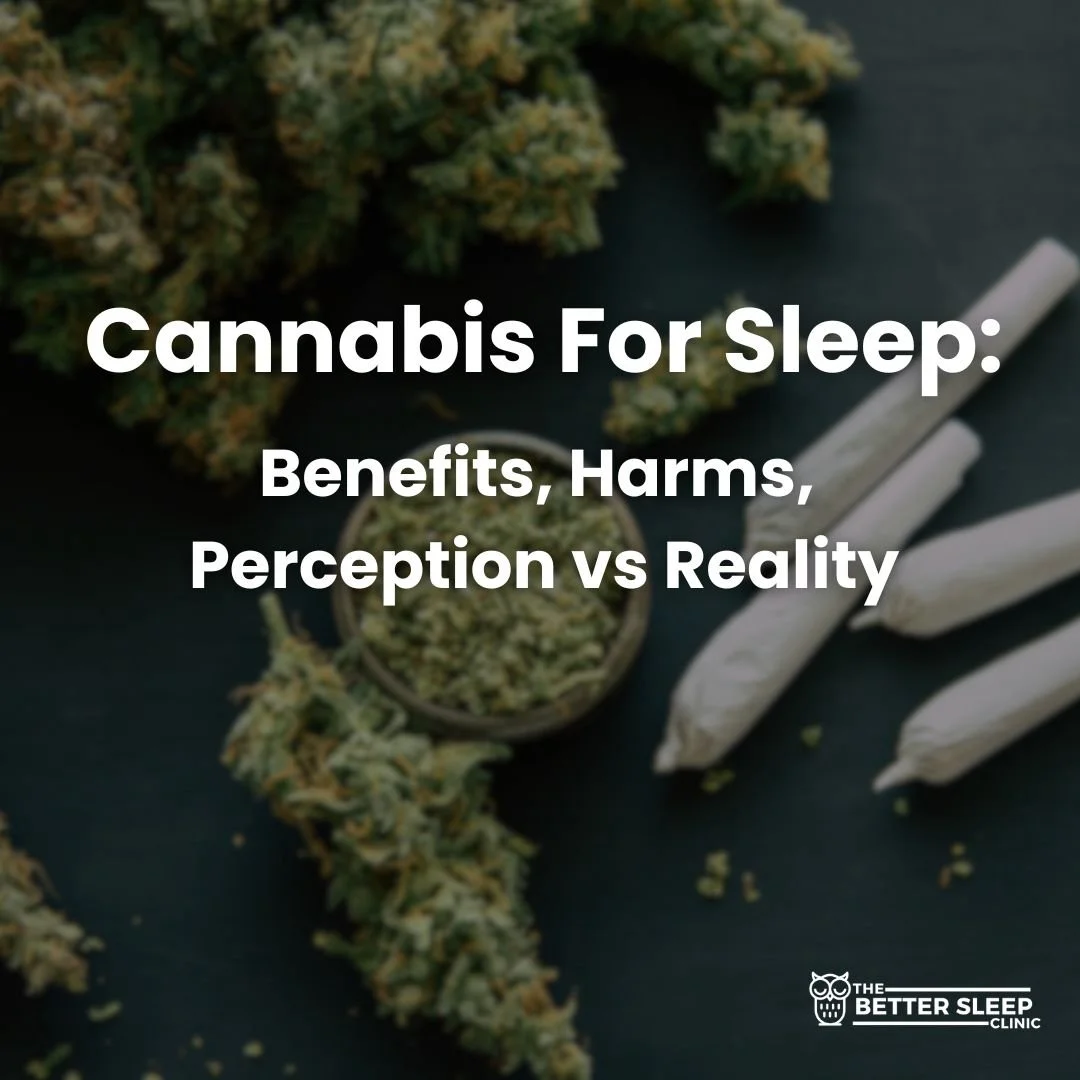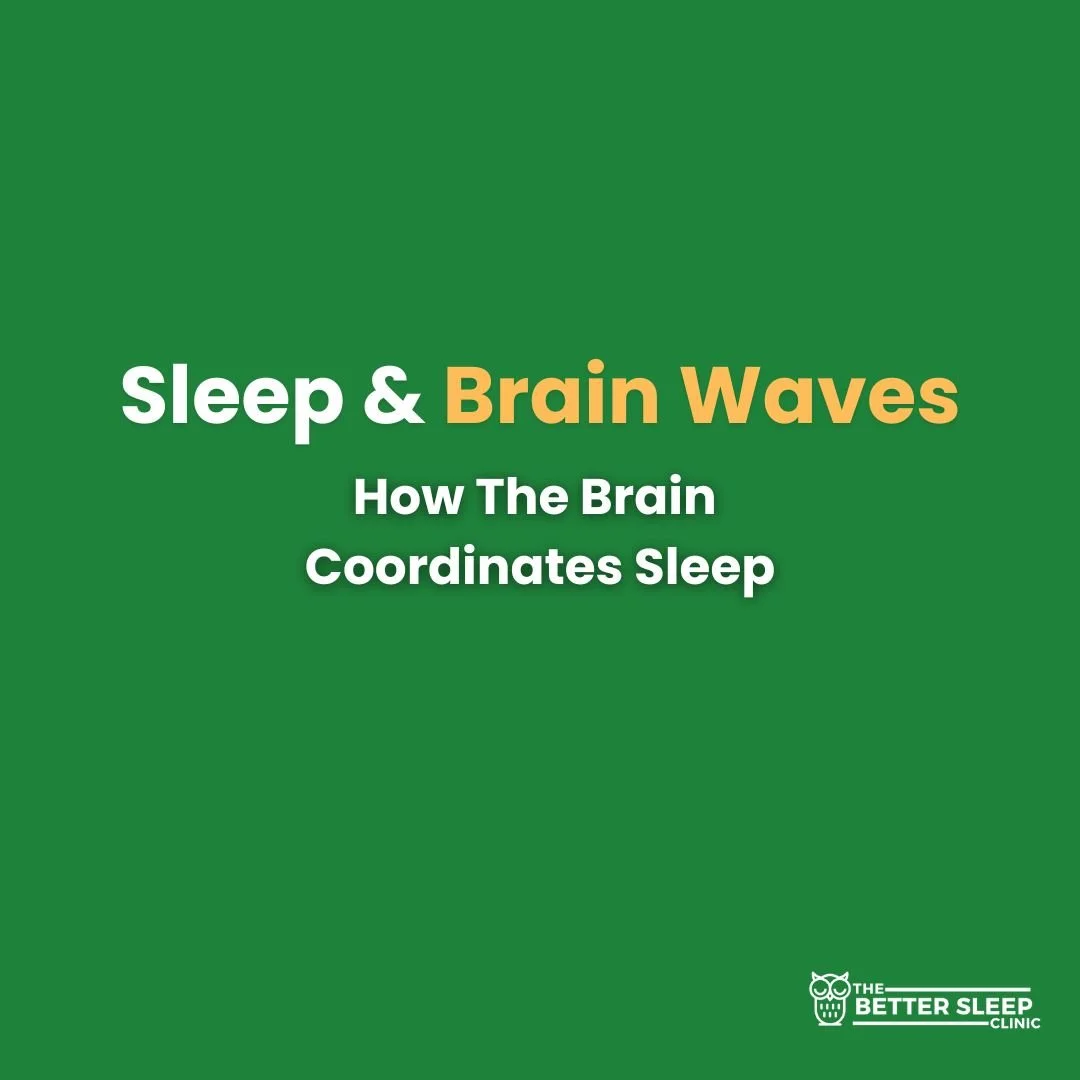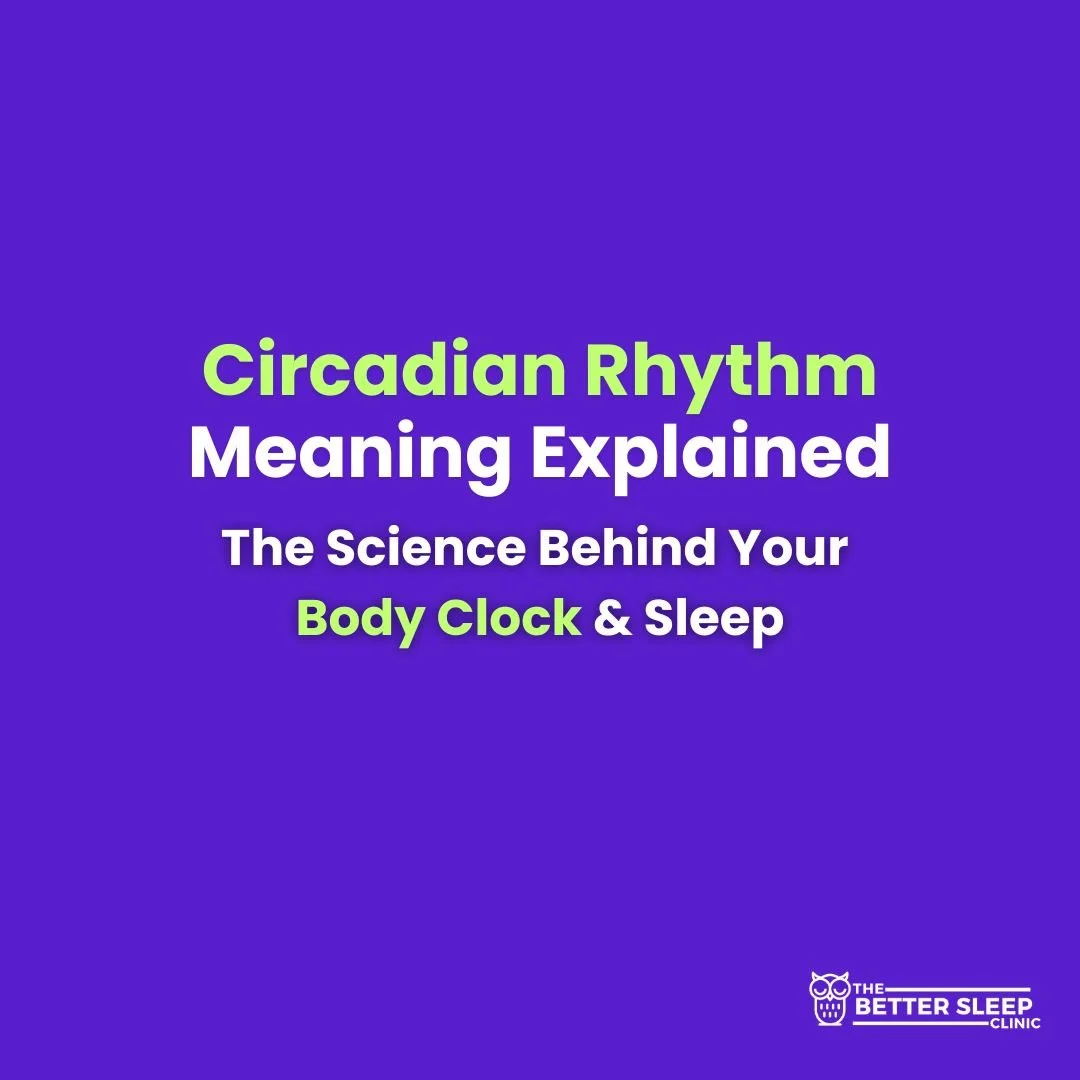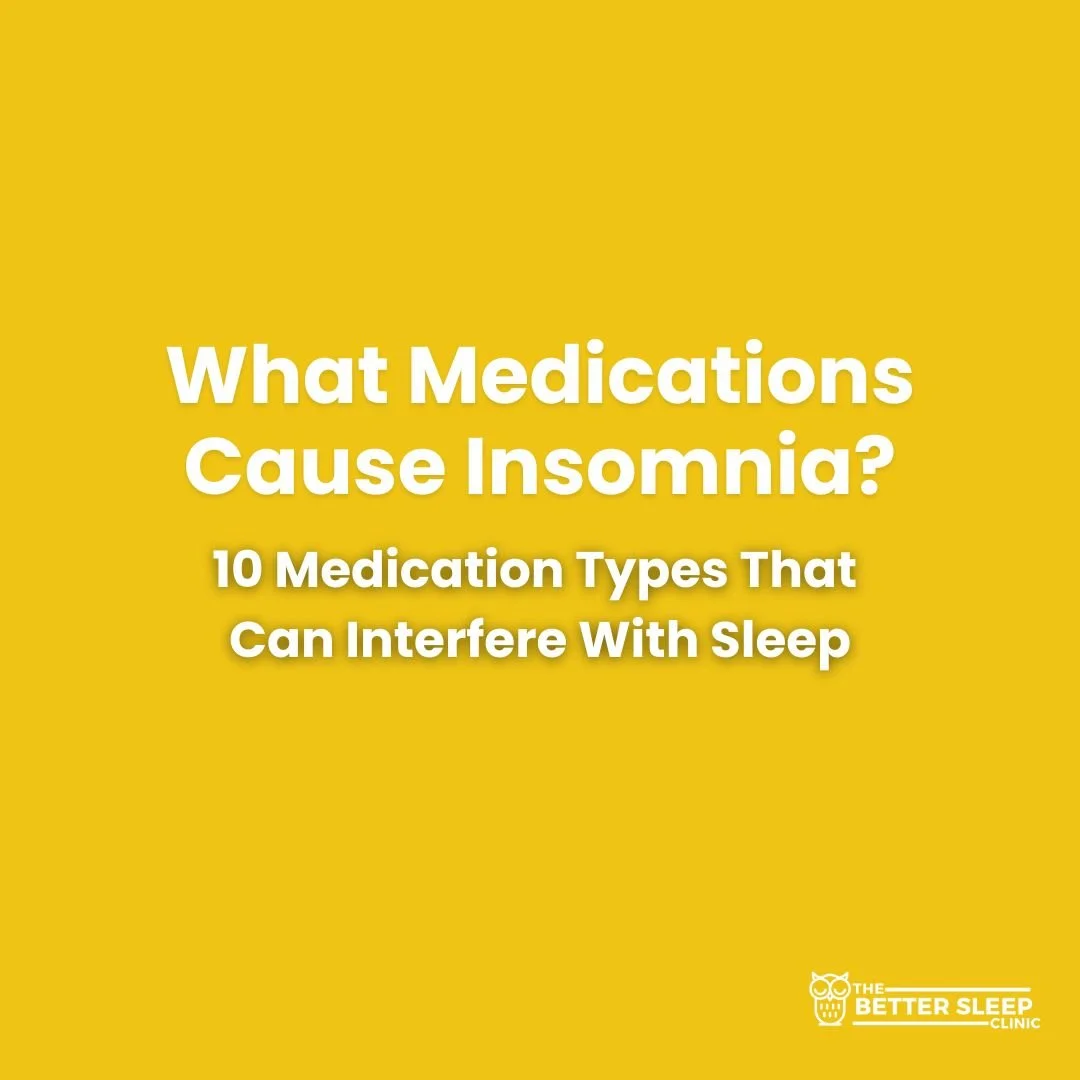Cannabis For Sleep: Benefits, Harms, Perception vs Reality
Quick Summary
Overall Negative Impact: A large-scale systematic review found that for most adults, recreational cannabis use has a harmful effect on sleep quality.
Disrupted Sleep Patterns: Cannabis use was strongly linked to unhealthy sleep durations—either less than six hours or more than nine hours a night—and reduced sleep efficiency, meaning more time spent awake in bed.
Perception vs. Reality: While many users believe cannabis helps them fall asleep faster, objective laboratory tests show it can actually increase the time it takes to fall asleep.
THC is the Likely Culprit: The sleep-disrupting effects are likely caused by delta-9-tetrahydrocannabinol (THC), the main psychoactive compound in cannabis, which is typically found in high concentrations in recreational products.
It’s a common belief: if you’re struggling to fall asleep, cannabis might be the answer. After all, marijuana is natural and a natural product must be less harmful than a manufactured pill, right? Right???
Many people use cannabis recreationally with the hope of getting a better night’s sleep. But the conversation around cannabis and sleep has been dominated by personal stories and assumptions.
But does this popular perception line up with the scientific evidence?
To get a clearer picture, researchers, Costa and colleagues (2025), conducted a systematic review, a type of study that gathers and analyzes all available high-quality research on a specific topic. This particular review provides one of the most thorough looks to date at how recreational marijuana use affects sleep in adults (Costa et al., 2025).
So, what did this deep analysis of the science uncover?
Does Cannabis Help or Harm Your Sleep?
Costa et al’s (2025) systematic review indicates that recreational cannabis use generally harms, rather than helps sleep. The 2025 review published in Trends in Psychiatry and Psychotherapy analyzed 18 different studies that included a total of 29,858 adults. The conclusion was clear: 15 of the 18 studies showed that using marijuana harmed sleep in several ways (Costa et al., 2025).
This finding directly challenges the widespread belief that cannabis is a useful sleep aid. The review combined information from studies conducted in four different countries, providing a broad view of the issue.
It found that the negative changes to sleep were most pronounced in two groups: people who used marijuana more heavily and those who started using it at a younger age.
This large-scale analysis moves beyond individual opinions and provides a strong, evidence-based look at the relationship between recreational cannabis and sleep.
But what specific parts of sleep does it affect?
Does Cannabis Affect How Long You Sleep?
Recreational marijuana use is strongly associated with unhealthy sleep durations, often pushing people toward extremes of either sleeping too little or too much. Sleep duration, the total amount of time you spend asleep, was the sleep characteristic most consistently affected by cannabis use in the systematic review by Costa et al (2025).
How Does Marijuana Use Affect How Long You Sleep?
A large study by Diep et al. (2021) found that heavy marijuana users were significantly more likely to experience sleep extremes, sleeping for either less than six hours or more than nine hours per night.
Both short and long sleep durations are linked to a range of health problems, including an increased risk for chronic diseases. The same study noted that recent, less frequent users tended to have an increase in their sleep duration, suggesting the substance immediately alters the body's natural sleep patterns (Diep et al., 2021). This contrasts with studies of long term users which suggests more disrupted sleep (e.g. Karacan et al., 1976)
Does Age Influence How Cannabis Affect’s Sleep Duration?
Yes. Studies suggest that the age when a person starts using marijuana appears to be a critical factor in experiencing shorter sleep duration. Research by Winiger et al. (2019) found a link between starting cannabis use at a young age and having decreased sleep duration in adulthood.
Why Does Early Marijuana Use Shorten Sleep Duration?
It’s not clear why, but researchers speculate that early cannabis use can interfere with how the brain grows and develops, particularly in areas like the prefrontal cortex and amygdala. These brain regions are involved in regulating sleep, and changes to their structure and function during adolescence could lead to lasting sleep problems, including chronic sleep deprivation (McPherson et al., 2021; Winiger et al., 2019).
Okay, so getting the right amount of sleep is important, but arguably, the quality of that sleep matters just as much if not more.
So, how does cannabis impact the sleep quality?
Does Marijuana Harm Sleep Quality?
Yes, multiple studies show that cannabis users often have lower sleep efficiency, which means they spend more time tossing and turning in bed instead of being soundly asleep. Sleep efficiency is a measure of the percentage of time you are actually asleep while in bed. For example, if you are in bed for eight hours but only sleep for six, your sleep efficiency is 75%. A healthy sleep efficiency is typically considered to be 85% or higher.
The review by Costa et al. (2025) highlighted several studies that found decreased sleep efficiency among marijuana users.
One study observed this effect was most prominent in recent users (Diep et al., 2021).
Another found it was a particular issue for those who consumed edible marijuana products (Winiger et al., 2019).
Even older research using objective, in-lab sleep studies confirmed that heavy marijuana users had significantly worse sleep efficiency compared to non-users (Bolla et al., 2008).
Does Cannabis Use Harm Daytime Functioning?
Two studies included in Costa et al’s (2025) review found that cannabis users reported more daytime dysfunction, which includes problems like irritability, lack of energy, and difficulty with concentration and memory (Drazdowski et al., 2021; Ogeil et al., 2015). Given the evidence that marijuana reduces sleep quality, this can create a damaging cycle: poor sleep quality leads to feeling unwell during the day, which may prompt a person to use more cannabis to cope, further worsening their sleep quality.
Of course, one of the main reasons people turn to cannabis is to fall asleep in the first place. Does it actually work for that purpose?
Does Marijuana Help You Fall Asleep Faster?
The evidence on whether recreational cannabis helps you fall asleep faster is conflicting and reveals a big difference between what people believe is happening and what objective sleep tests show. The time it takes to transition from being fully awake to being asleep is called sleep latency. Many users report that cannabis significantly shortens this period.
For example, studies that relied on self-report questionnaires, where participants simply describe their own experiences, found that users felt they took less time to fall asleep (Altman et al., 2019; Sznitman et al., 2020). This personal feeling is a powerful reason why people believe cannabis is an effective sleep aid.
However, when researchers brought users into a sleep lab and measured their brain waves directly, the results told a different story.
A study by Bolla et al. (2008) used polysomnography, a comprehensive test that records brain waves, heart rate, and breathing during sleep. It found that heavy marijuana users actually took longer to fall asleep than non-users.
An even earlier study from 1976 that used similar objective measurements found the same thing—chronic users showed a significant increase in sleep latency (Karacan et al., 1976).
This suggests that while cannabis might make you feel sleepy or relaxed, it may not be helping your brain make the switch into sleep any faster. In fact, it could be delaying it.
Why would there be such a significant difference between perception and reality?
Why Are the Effects of Cannabis on Sleep So Inconsistent?
Costa et al (2025) speculate that the varied effects of cannabis on sleep are likely caused by the different chemical compounds within the plant, primarily the balance between THC and CBD. Recreational marijuana is not a single, uniform substance. Its effects can vary widely based on the concentration of its two most famous cannabinoids.
Delta-9-tetrahydrocannabinol (THC) is the main psychoactive component in cannabis. Basically, it’s what causes the "high." On a chemical level, higher doses of THC can have a stimulant effect, which may explain why objective studies show it can disrupt sleep architecture and make it harder to fall asleep (Costa et al., 2025).
Most recreational cannabis is cultivated to have a very high proportion of THC compared to other compounds.
Cannabidiol (CBD), on the other hand, is a non-psychoactive compound that has gained attention for its potential therapeutic properties. In medium-to-high doses, CBD has been shown to have a sedative effect and may be associated with perceptions of improved sleep (Costa et al., 2025).
The problem is that most recreational cannabis products are high in THC and low in CBD. This chemical imbalance may explain why the overall effect of recreational use is poor sleep. The stimulant properties of the dominant compound, THC, simply overpower any potential sedative effects from the smaller amounts of CBD. This also helps explain why some users might report positive effects while lab studies show the opposite—different strains with different THC/CBD ratios could produce different results.
Beyond the chemistry of the plant, do the effects of cannabis on sleep differ from person to person?
Who Is Most Affected by the Negative Sleep Effects of Marijuana?
Research suggests that women and individuals who begin using cannabis at a young age are more likely to experience more serious negative effects on their sleep (Costa et al., 2025).
Several studies included in the review pointed to a greater vulnerability among women (McPherson et al., 2021; Ogeil et al., 2015; Ly et al., 2013). This gender difference may be due to the way women metabolize substances, or how their bodies process them. Hormonal interactions and metabolic rates could lead women to become dependent on cannabis more quickly, and these biological factors may also amplify the drug's negative effects on sleep architecture (Ly et al., 2013). This is especially true for women who started using marijuana during adolescence (McPherson et al., 2021).
As mentioned earlier, the age of first use is a powerful predictor of future sleep problems. The brain undergoes critical development during the teenage years, and introducing cannabis during this period can lead to lasting changes in brain structure and function. These changes can permanently alter the neural circuits that regulate sleep, leading to a lifetime of poorer sleep quality (Costa et al., 2025).
Given all this evidence, one question remains. Why is there such a strong popular perception that marijuana improves sleep?
Why Do So Many People Believe Cannabis Improves Sleep?
Many people continue to believe cannabis improves their sleep because of a powerful combination of what people expect to happen and the drug's instant relaxing feeling, even when the data shows it is actively harming their sleep quality. This situation, where the belief in a substance's effect can influence one's perception, was a common finding in the research (Costa et al., 2025). It is also echos popular beliefs around alcohol and sleep.
Several studies found that participants who expected cannabis to help them sleep were more likely to use it for that purpose, regardless of the actual outcome (Skobic et al., 2021; Winiger et al., 2021). This belief was particularly strong among men and people who used other drugs. These individuals often turn to marijuana for sleep instead of pursuing evidence-based treatments like cognitive behavioral therapy for insomnia (CBT-I) or other medical interventions (Skobic et al., 2021).
This creates two significant concerns. First, the expectation that cannabis will solve sleep problems can lead to an increase in use, potentially creating a cycle of dependency (Winiger et al., 2021; Bolla et al., 2008). Second, by using cannabis as a sleep aid, individuals may be masking or even worsening an underlying sleep disorder, preventing them from seeking effective treatment and allowing the root problem to become more severe.
What Are the Practical Takeaways?
While the idea of a simple, natural sleep aid is appealing, the scientific evidence on recreational cannabis tells a cautionary tale. For anyone considering using it to improve their rest, it's important to understand the potential downsides.
Not a Reliable Sleep Aid: Contrary to popular belief, recreational cannabis is not a reliable or effective sleep aid for most people. A large body of evidence shows it is more likely to harm sleep quality than improve it.
High THC is a Problem: The high concentration of THC in most recreational products is the likely cause of sleep disruption. Its stimulant effects can interfere with falling asleep and reduce the overall quality of rest.
Perception Can Be Deceiving: You may feel like cannabis helps you relax and fall asleep, but objective measures of brain activity often show that it is delaying and fragmenting your sleep.
Seek Evidence-Based Solutions: If you are struggling with sleep, relying on cannabis could make things worse. Masking a potential sleep disorder can have long-term health consequences. Speaking with a doctor or sleep specialist about evidence-based treatments like CBT-I is a much safer and more effective approach to achieving truly restorative sleep.
Looking to talk to a NZ sleep clinic for sleep help? Whether it’s an Auckland sleep clinic, Wellington sleep clinic, Christchurch sleep clinic, Hamilton sleep clinic or anywhere in NZ, we can help. Request a free chat below or book an assessment and get started addressing your sleep problems today.
Frequently Asked Questions: Cannabis and Your Sleep
Q1: Does marijuana actually help you sleep?
A1: No, for most people, recreational marijuana use generally harms, rather than helps, sleep quality. A large-scale review that combined the results of 18 scientific studies found that the majority of them showed cannabis had a harmful effect on sleep (Costa et al., 2025). The negative effects are often worse for heavy users and for people who started using cannabis at a young age.
Q2: Will cannabis make me fall asleep faster?
A2: While it might make you feel sleepy, objective lab tests show that recreational cannabis can actually make it take longer to fall asleep. Studies that measure brain waves directly, using methods like polysomnography, have found that heavy marijuana users take significantly longer to fall asleep compared to non-users (Bolla et al., 2008; Karacan et al., 1976). This contradicts the common belief that it shortens the time it takes to doze off.
Q3: How does cannabis affect the amount of sleep I get?
A3: Cannabis use is strongly linked to unhealthy sleep durations, meaning you're more likely to sleep too little (less than 6 hours) or too much (more than 9 hours). Research has shown that heavy cannabis users are particularly at risk for these extremes in sleep duration (Diep et al., 2021). Furthermore, starting cannabis use at a young age is associated with getting less sleep in adulthood (Winiger et al., 2019).
Q4: What's the difference between THC and CBD for sleep
A4: The THC in cannabis is likely what disrupts sleep, while CBD may have sedative properties that could help sleep. Most recreational cannabis is bred to be high in THC, the compound that causes a "high" and can have a stimulant effect that interferes with sleep. In contrast, CBD is a non-psychoactive compound that has been associated with improved sleep quality in some studies. However, because of the high THC-to-CBD ratio in most recreational products, the sleep-disrupting effects of THC usually win out (Costa et al., 2025).
Q5: Does eating marijuana edibles affect sleep differently than smoking
A5: Yes, some research suggests that consuming edibles can be particularly bad for your sleep efficiency. One study specifically found that users of edible marijuana products had lower sleep efficiency, which means they spent more time awake and restless in bed after initially falling asleep (Winiger et al., 2019).
Q6: Does cannabis affect sleep differently for men and women?
A6: Yes, current research indicates that women may be more vulnerable to the negative sleep effects of cannabis. This difference could be due to biological factors, including how women's bodies process substances and interact with hormones. These factors might lead to quicker dependency and amplify the drug's negative effects on sleep (Ly et al., 2013; McPherson et al., 2021).
Q7: If science says marijuana is bad for sleep, why do I feel like it helps me?
A7: This feeling is likely due to a combination of the immediate relaxing effects of cannabis and your personal expectation that it will help you sleep. Many people use cannabis because they believe it will improve their sleep, and this belief can be very powerful (Skobic et al., 2021). However, this subjective feeling often doesn't match the objective reality; while you might feel relaxed, the drug can be disrupting your brain's natural sleep patterns without you realizing it (Bolla et al., 2008).
Q8: Is it a bad idea to rely on marijuana for sleep?
A8: Yes, relying on marijuana for sleep is not recommended because it can worsen your sleep quality over time and may prevent you from addressing an underlying sleep disorder. Using cannabis as a sleep aid can create a damaging cycle where poor sleep leads to more cannabis use, which in turn leads to even worse sleep (Drazdowski et al., 2021). It is much safer and more effective to speak with a doctor or sleep specialist about evidence-based treatments for any sleep problems you are experiencing.
References
Altman, B. R., Mian, M. N., Slavin, M., & Earleywine, M. (2019). Cannabis expectancies for sleep. Journal of Psychoactive Drugs, 51(5), 405-412.
Bolla, K. I., Lesage, S. R., Gamaldo, C. E., Neubauer, D. N., Funderburk, F. R., Cadet, J. L., & David, P. M. (2008). Sleep disturbance in heavy marijuana users. Sleep, 31(6), 901-908.
Costa, N. L., Silva, W. C. S., Silva, M. L., & Cunha, K. C. (2025). Sleep quality of adult recreational cannabis users: a systematic literature review. Trends in Psychiatry and Psychotherapy, 47, e20240802.
Diep, C., Tian, C., Vachhani, K., Won, C., Wijeysundera, D. N., Clarke, H., & Singh, M. (2022). Recent cannabis use and nightly sleep duration in adults: a population analysis of the NHANES from 2005 to 2018. Regional Anesthesia & Pain Medicine, 47(2), 100-104.
Drazdowski, T. K., Kliewer, W. L., & Marzell, M. (2021). College students’ using marijuana to sleep relates to frequency, problematic use, and sleep problems. Journal of American College Health, 69(1), 103-112.
Karacan, I., Fernández-Salas, A., Coggins, W. J., Carter, W. E., Williams, R. L., Thornby, J. I., Salis, P. J., & Nall, H. B. (1976). Sleep electroencephalographic-electrooculographic characteristics of chronic marijuana users: part I. Annals of the New York Academy of Sciences, 282, 348-374.
Ly, C., & Gehricke, J. G. (2013). Marijuana use is associated with inattention in men and sleep quality in women with attention-deficit/hyperactivity disorder: a preliminary study. Psychiatry Research, 210(3), 1310-1312.
McPherson, K. L., Tomasi, D. G., Wang, G. J., Manza, P., & Volkow, N. D. (2021). Cannabis affects cerebellar volume and sleep differently in men and women. Frontiers in Psychiatry, 12, 643193.
Ogeil, R. P., Phillips, J. G., Rajaratnam, S. M. W., & Broadbear, J. H. (2015). Risky drug use and effects on sleep quality and daytime sleepiness. Human Psychopharmacology: Clinical and Experimental, 30(5), 356-363.
Skobic, I., Apolinar, G. R., Quan, S. F., & Haynes, P. L. (2021). Marijuana versus evidence-based treatments for sleep and relaxation: a cross-sectional study of use and dose modification following involuntary job loss. Sleep Health, 7(1), 113-117.
Sznitman, S. R., Shochat, T., & Greene, T. (2020). Is time elapsed between cannabis use and sleep start time associated with sleep continuity? An experience sampling method. Drug and Alcohol Dependence, 208, 107846.
Winiger, E. A., Ellingson, J. M., Morrison, C. L., Corley, R. P., Pasman, J. A., Wall, T. L., Hewitt, J. K., & Friedman, N. P. (2021). Sleep deficits and cannabis use behaviors: an analysis of shared genetics using linkage disequilibrium score regression and polygenic risk prediction. Sleep, 44(2), zsaa188.
Winiger, E. A., Hitchcock, L. N., Bryan, A. D., & Cinnamon Bidwell, L. (2021). Cannabis use and sleep: expectations, outcomes, and the role of age. Addictive Behaviors, 112, 106642.
Winiger, E. A., Huggett, S. B., Hatoum, A. S., Stallings, M. C., & Hewitt, J. K. (2019). Onset of regular cannabis use and adult sleep duration: genetic variation and the implications of a predictive relationship. Drug and Alcohol Dependence, 204, 107517.
Written By The Better Sleep Clinic
Reviewed By Dan Ford, Sleep Psychologist












